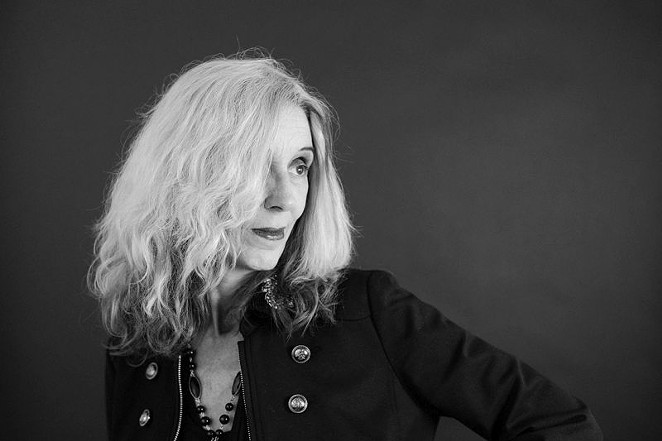Singer and songwriter Donna Frost is on a musical journey. She’s made it her life’s work for decades now, having grown up in a musical family and learned instruments from a young age. She’s released a number of critically acclaimed albums and regularly tours throughout the country, but more recently she’s decided to use music as a force for good—working with foundations and organizations to spread positivity through art.
Frost is set to perform on Thurs., August 2 at First Presbyterian Church Stewart Hall, for the Savannah Folk Music Society’s “First Friday for Folk Music” series. Ahead of her performance, we talked with Frost about her career so far and what it means to use her art to its fullest potential.
How did you get into music?
Frost: I grew up in a musical family, and my family sang gospel music. They were traveling on weekends before I was born, so they took off two weeks before I was born and two weeks after. I was in the car with them, going on gigs with my parents! So whenever I was old enough to start singing, I did. My Aunt Mary was a piano player for them, and she also worked at RCA with Chet Atkins before marrying Felton Jarvis, who was Elvis’ producer.
When I was a kid, my aunt paid for me to take piano lessons. I bought a piano with my own money, and then took up guitar when I was 11. And of course, like everybody else, I grew up during Beatlemania. I remember watching them on Ed Sullivan and saying, “I want to do that.” I started taking guitar lessons when I was 11, and I’d go into my room after school and play along to my records. Stuff like Joni Mitchell and Judy Collins, James Taylor, Carly Simon. On top of Beatles and all of that. All of that was my influence. Jim Croce especially, because he was a storyteller. I wanted to be a storyteller kind of songwriter—I wasn’t interested in being a Music Row songwriter like most people aspire to be.
The thing that I love about all of that music is the poetry in the lyricism. Even the protest songs from people like Joan Baez—it wasn’t aggressive, it was powerful and poetic. Do you find yourself exploring those lyrical avenues? How do you approach the subjects you take on?
Frost: Nowadays, a lot of my songs come from adventures on the road. There are a lot of positive songs about life and getting older. My songs cover everything—people I meet or things that I’ve experienced in different parts of the country. It’s Americana, you know? I’ve overcome a bunch of things in life. Sometimes it would read like a bad country song if I wrote it out, but we’ve all had our trials. So I try to give people some hope and encouragement [through music].
On that subject, I was intrigued by the work you’ve done with organizations like Music For Seniors. What has that been like, using music in this really fulfilling and sometimes therapeutic way?
Frost: Music For Seniors is based out of Nashville, and we do outreach programs to senior communities. I do about five or six programs for them per month, and a lot of my audiences for those are memory care. Alzheimer’s and dementia patients. I see miracles daily when I play for these groups, because the old songs that you play for them connect with them. They can remember every word, even when they don’t know their name or who you are. When you start playing, it turns a switch on.
I used to be with Musicians On Call, which went to hospital rooms and I’d play for patients there. I’d write songs for terminally ill kids, too. I have always been about doing outreach programs, but in the last 10 or 15 years I’ve realized that I needed to be doing something with my music to give back besides just putting it out there. I wanted to do something to make a difference in people’s lives and help others.


